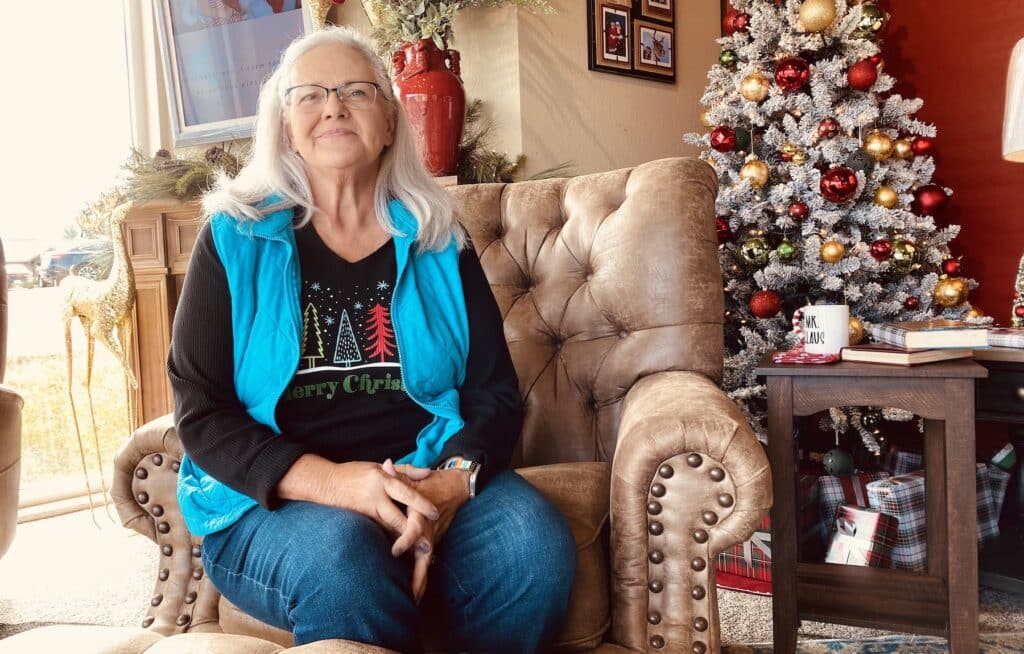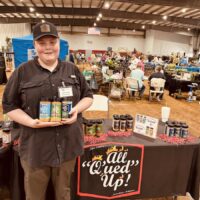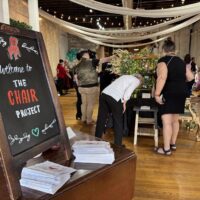It’s been a very long time since I had any interest in the Black Friday mania that is supposed to kick off Christmas shopping in America. And I cannot recall the last time I was inside a shopping mall long enough to walk from one end to the other. It must have been before the pandemic.
But if you want to talk about Small Business Saturday, I’m interested in that.
The Saturday after Thanksgiving was designated a special retail day in 2010, when the American Express credit card company came up with the idea to market the country’s locally owned small shops. It was meant to give the little guys a boost during the Great Recession.
The idea stuck and Small Business Saturday continues today to shine a light on the significance of family-owned businesses and what they do for their communities. (Here’s one hint: Next spring, take a look at who is donating most of the goods featured at Hopkinsville’s Rotary Auction.)
Civics in retail
For me — and surely others — there’s something downright civic about pulling for local businesses during the season when many of us will be buying gifts for family and friends. I know it’s ultimately about consumerism and profits, which shouldn’t be the focus of Christmas, but if I’m going to spend my money on gifts I’d like to at least consider who benefits from my shopping.
That’s why Black Friday and Shop Small Saturday are polar opposites to me.
I’m just old enough to remember a time when Christmas shopping was done almost entirely at locally owned stores in downtown Hopkinsville and at a couple of neighborhood shopping centers. When I was 10 years old, there was only one good reason I had to go out of town for holiday shopping. My grandmother and I needed to get to the S&H Green Stamps store in Clarksville, Tennessee, because we’d spent months filling up Green Stamp books with grocery store coupons that could be exchanged for cameras and lamps and such.
I’d like to say my genuine affection for local institutions and small businesses keeps me out of the Amazon habit. I’ll just say I’m trying to reduce my dependence on that giant of all retail giants.
My life as a shopper has crossed from an economy dominated by local stores to one dominated by chain stores and the internet. That gives people like me, the ones born at the very end of the Baby Boomer generation, some perspective about what we’ve lost. There was no such thing as anonymity when shopping for all of one’s holiday gifts in local stores. The shopper and the owner knew each other. There was a personal connection — and accountability.
I’m not trying to gloss over things. Not every shopkeeper was a kindly sort. And plenty of shoppers could be cranky in the good old days. But I know from personal experience that people, for the most part, behave differently when they are doing business with someone they are likely to see again and again and again. A relationship between a shopper and a storekeeper (my grandmother called it “trading”) is an investment of time, energy and money, on both sides. You don’t treat it lightly like we might be tempted to do in an exchange with an anonymous clerk at a big box store.
A legacy store
I’ve been thinking about Hopkinsville’s local retailers and I asked one store owner to describe her family’s business history in Hopkinsville.
Lee Ann Naghtin’s parents, Herb and Marilyn Hays, moved from Indiana to Hopkinsville to establish their furniture store on Fort Campbell Boulevard. The youngest of her late parents’ three children, Lee Ann, who is 64 years old, now runs the business.

Herb Hays Furniture and Mattress has been in operation for 61 years, and I’m pretty certain it is currently the oldest retail store run by the same family in Hopkinsville. Two other locally owned businesses hold other distinctions: Cayce Mill Supply Co., celebrated its centennial in 2019 and is the oldest wholesaler in the community. Hopkinsville Milling Co., dating to 1874, is the oldest industry in Hopkinsville.
Learning how to run a business in a family isn’t without its challenges, but Lee Ann didn’t hesitate when I asked what lessons she learned from her parents that she still wants to follow today.
“Just be honest. Give customers a good value. And treat your employees well,” she said.
Herb Hays died in 1987, at age 58 while serving as Hopkinsville’s mayor. Marilyn continued to work in the store until roughly six months before her death in 2015, when she was 85. All three of their children worked in the store at various times. Lee Ann’s sister, Peg Hays, left the business in 2016 to focus full-time on Casey Jones Distillery. Their brother, Jack, died in 2014. His daughter, Mandy Hays-Calhoun, has worked at the store for several years.
Today Herb Hays Furniture has 14 full-time employees. Lee Ann takes off a few afternoons a week to spend time with her grandchildren and makes time for horseback riding, so she’s the only part-timer. She said she considers herself fortunate to have a staff that runs the business without her being present full-time.
Recently, the store received a $10,000 grant from the Synchrony Pillars Project — one of 20 awarded nationwide to businesses that demonstrate achievements during times of change. One of the criteria for the award was proof of community involvement, which in the past year included assistance to tornado victims, more than $5,000 in donations to the Pink Ribbon Network and support for Christmas gifts to children and adults with disabilities.
Christmas isn’t the biggest shopping season for furniture retailers, but Herb Hays Furniture has several holiday-themed displays created by interior designer Bob Lancaster and the store’s employees. The displays are nostalgic, eclectic and playful.

Shop small continues
The focus on Small Business Saturday included several activities this weekend sponsored by Hopkinsville’s Downtown Renaissance District. But the purpose of the day is really to remind us to shop small through the holiday season and beyond. Here’s a list of several of those businesses highlighted on the Downtown Renaissance District’s website. And here’s a list of stores and specialty retailers on the Christian County Chamber of Commerce website.
Have a great week, everyone.
Jennifer P. Brown is co-founder, publisher and editor of Hoptown Chronicle. You can reach her at editor@hoptownchronicle.org. Brown was a reporter and editor at the Kentucky New Era, where she worked for 30 years. She is a co-chair of the national advisory board to the Institute for Rural Journalism and Community Issues, governing board past president for the Kentucky Historical Society, and co-founder of the Kentucky Open Government Coalition. She serves on the Hopkinsville History Foundation's board.





